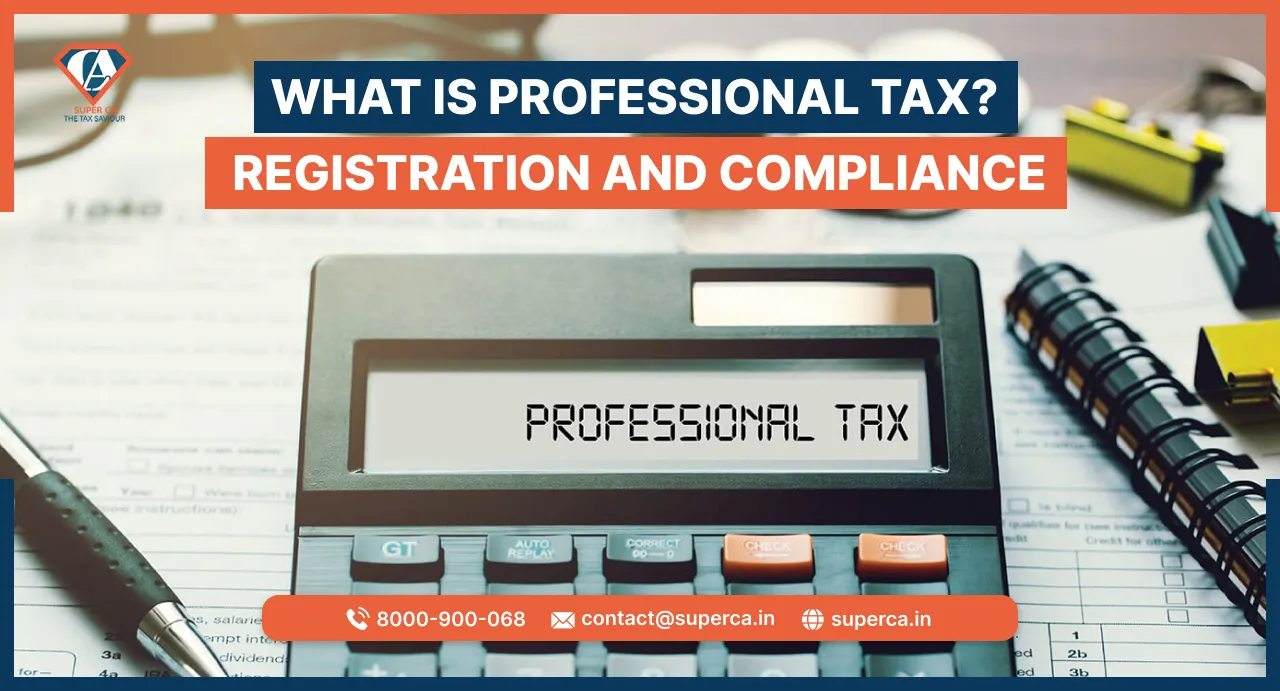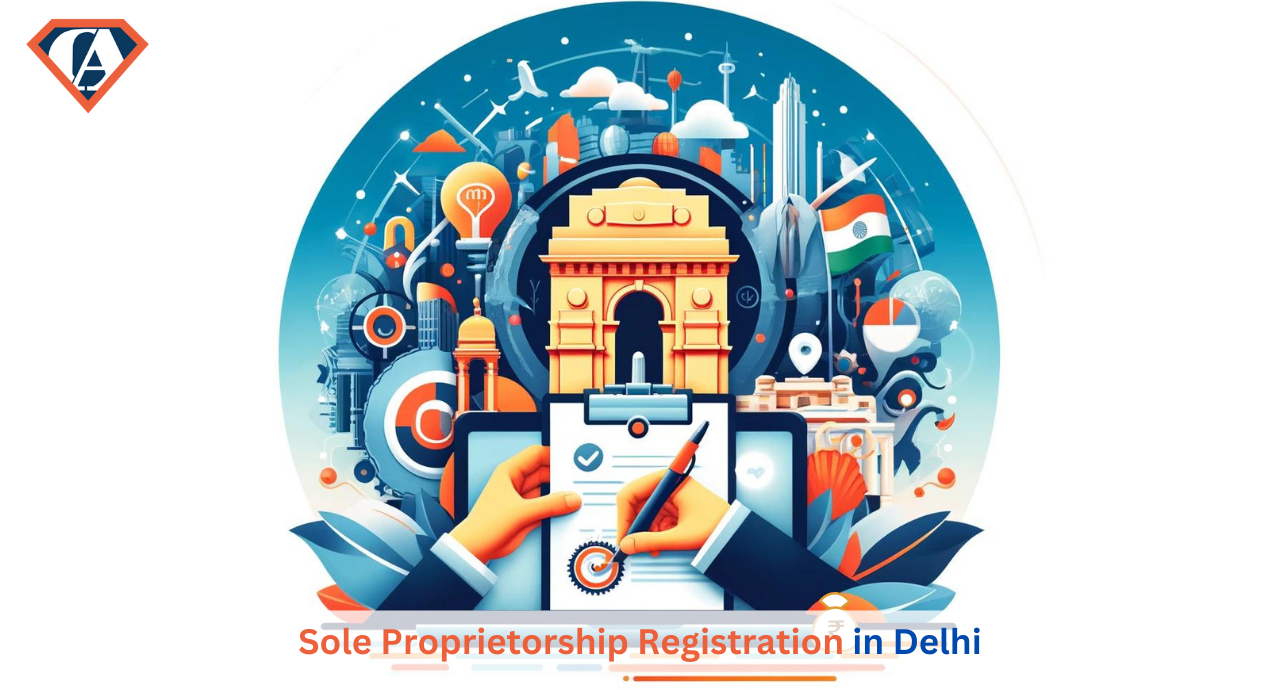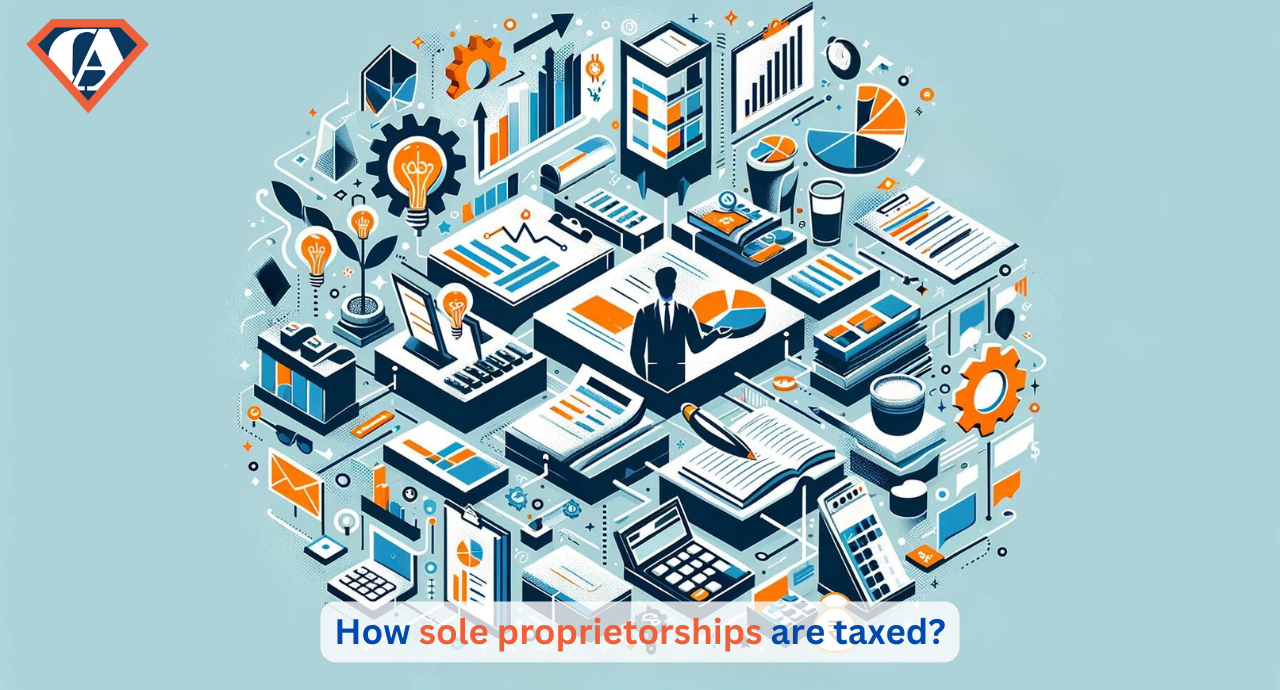What is Professional Tax? Registration and Compliance
- Posted By SuperCA
- On 27 June

Professional tax is a kind of direct tax. Professional tax is levied on those individuals whose source of income is either a profession, employment, calling practice or trade. The Professional tax is levied on the individuals by the government of the state or the union territory in our country. For salaried and wage earners, the professional tax is deducted by the employers from the salaries or wages of the individuals and is deposited to the government of the state. For all other individuals, the employees will have to pay the tax by themselves. The amount of the tax calculated and the amount of tax that is collected may be different for different states but the maximum limit remains the same i.e. Rs. 2500 per year.
Applicability of Professional Tax
Professional Tax is imposed on all sorts of professions, employment and trades. The following classes of people have to pay the professional tax:
- Any Individual
- A Hindu Undivided Family
- Any company or firm or cooperative society or association of people or a group of individuals either they are incorporated or not.
All the individuals who are involved in salaried sources of income like lawyers, teachers, doctors, CAs and many others also have to pay the professional tax.
Applicable and Non-Applicable states
The states in which Professional tax is applicable are as follows:
- Andhra Pradesh
- Assam
- Bihar
- Gujarat
- Jharkhand
- Karnataka
- Kerala
- Madhya Pradesh
- Maharashtra
- Manipur
- Meghalaya
- Mizoram
- Nagland
- Odisha
- Pondicherry
- Punjab
- Sikkim
- Tamil Nadu
- Telangana
- Tripura
- West Bengal
The states in which the professional tax is inapplicable are as follows:
- Uttarakhand
- Uttar Pradesh
- Rajasthan
- Lakshadweep
- Ladakh
- Jammu and Kashmir
- Himachal Pradesh
- Haryana
- Goa
- Delhi
- Daman and Diu
- Dadra and Nagar Haveli
- Chattisgarh
- Chandigarh
- Arunachal Pradesh
- Andaman and Nicobar Islands
- Central
Rate of Professional Tax
The maximum annual amount that is payable as a professional tax is Rs. 2500. Professional Tax in general is a slab of income which is based on the total/gross income of the individual. The professional tax is deducted from the income of the individual per month.
The professional tax is collected by the Commercial Taxes Department of the concerned state or union territory as per the specified tax slabs which are different for different states or union territories. The computation of tax is done on the basis of the annual taxable income of the individual and can be paid either on a monthly basis or on an annual basis.
The responsibility of the employer
The responsibility for deducting professional tax from the incomes of the employees lies with the owner of the business. The owner has to pay the collected amount to the required government department. He/she should provide a return to the tax department in the specified form within the stipulated time period. The return must possess a proof of payment of tax. If this proof of tax payment is not enclosed in the form, then the return will be deemed as invalid or incomplete.
Exemptions Awarded for Professional Tax Payment
Certain individuals are awarded some exemptions while paying the professional tax as per the rules. These individuals are listed below:
- Parents of those children who have mental disability or permanent disability.
- Members or the forces as per the Army Act,1950, the Air Force Act,1950, and the Navy Act, 1957 along with the auxiliary force members who serve in the concerned states.
- Badli workers of textile industry.
- Any individual having a permanent physical disability.
- Women who are agents of the Mahila Pradhan Kshetriya Bachat Yojana or Director of Small savings.
- Parents of those individuals who are mentally disabled.
- Individuals who are older than 65 years of age.
Registration and Compliance of Professional Tax
Registration for professional tax should be done compulsorily within 30 days of hiring the staff in a business and for professional tax the registration should be done within 30 days from the start of the practice.
- An application for the certificate of registration must be made to the concerned tax department of the state within 30 days of hiring or employing the business staff.
- In case the assessee has multiple places of work, then each application must be made separately to each of the concerned authorities.
Professional Tax payment due dates
In case more than 20 employees have been employed by an employer, then he will have to make the payment of tax within 15 days from the end of the month. But in case less than 20 employees are employed by the employer, then he has to pay on a quarterly basis.
Professional Tax Registration Benefits
- The compliances of Professional Tax are easy to comply with and due to this, the registration process becomes smooth and simple without much restrictions.
- The professional tax must be paid as per the rules of the law. Therefore, any sort of penalties can be avoided.
- The compliance for Professional tax is simple and helps in a hassle-free registration.
- It is also a source of income for the government and helps the government in implementing various schemes for the development and welfare of the society.
- A deduction can be claimed by an employer or a self-employed individual on the professional tax that has been paid previously.
Documents Required
- An Incorporation certificate
- MoA and AoA
- PAN Card of llp or company or owner or director or proprietor
- NOC for the location of the business from the landlord
- Passport Size photo of owner or director
- ID and Address proof of the owner or director
- Details of the salaries paid and all the employees
- Additional licenses and registrations.
Registration Process for Professional Tax
One should follow the following steps to register for Professional Tax:
- The application form and all the required documents should be filed by the applicant.
- The application should be submitted along with all the necessary documents to the concerned state government. One more copy of the same needs to be submitted to the department of tax.
- On receiving the application, the tax authority needs to ensure that all the provided information is correct after scrutinising the application.
- Then, a registration certificate will be issued once the scrutinising of the documents has been successful.
Conclusion
In this blog, we discussed in detail the professional tax, its applicability and the states which apply the concept of professional tax. We also discussed the rate of professional tax, the responsibility of the employers, and the exemptions that are awarded on the payments of professional tax. We learnt about the benefits of registering for professional tax and the documents required for it and the registration process as well. We also learnt about the registration and compliance requirements and the due dates for the payment of professional tax.





